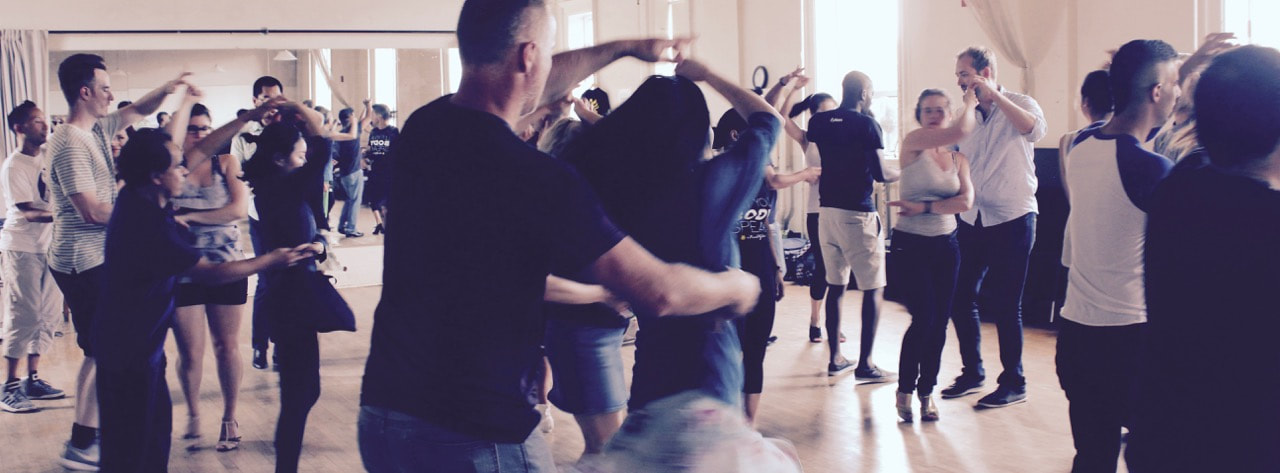|
If you’re a Latin danceaholic, your first few experiences watching two people tear it up on the dance floor probably got you hooked. You might have been enticed by the sensuality, the rawness, the fun, the partner connection, the music, or simply how cool they looked…
While in many Latin countries, locals grow up with the music and culture, most any non-Latin Americans learned to dance outside their home, namely through formal classes. One of the biggest benefits of classes is feedback and practice with different people to prepare you for the social dance floor. Here’s the order of operation: STEP #1 – Take group classes and/or privates to learn how to dance, and get feedback by trusted instructors. STEP #2 – Go out to a social/practice session/club and put those moves into practice. Start to build a level of sensitivity to leading/following others. Adjust, revise, improve. Have fun and meet new people along the way. REPEAT. While Step #1 alone doesn’t typically build great dancers, taking the time to learn basics builds a foundation for great dancing. And getting feedback is extremely valuable if you hope to improve. You’ll find that all levels, even world champions and experienced social dancers have coaches to help them become smoother "movers", more musical, clearer as a lead/follow. Step #2 is the next essential part of a dancer’s progress to greatness. What you learn, must be put into practice. Mistakes will be made, and that’s okay. It’s part of the journey and every dancer will go through it (pretty much forever). This isn’t like Calculus homework. There isn’t “one” right answer. It’s about discovering your voice as a dancer, which is just as unique as you are. First and foremost, remember that Latin dances meant to be danced SOCIALLY. That’s the best part! You'll meet people, create new friendships, laugh, connect and feel a sense of freedom that you’ve never felt before. It takes time and practice to feel the essence of each dance style and to find your voice. There will be bumps along the way but the results will be worth it! Here are 5 ways social dancing can help you becoming a better dancer.
Get yourself social dancing as soon as possible to gain inspiration of what’s to come. Being in an environment where there are others who enjoy dancing too can keep the fuelling your fire for dancing. Feel the vibe of the Latin dance culture and take full advantage of the social nature inherent in Latin dances. Watch, admire, absorb, and enjoy! Watching can be fun, but it’s even more fun to dance! #LetYourBodySpeak |
AuthorVarious authors including Caryl Cuizon, co-founder of iFreeStyle.ca Latin Dance Company. Archives
December 2021
Categories
All
|
Connect with us!Call or text (416) 669-1385
|
|



 RSS Feed
RSS Feed